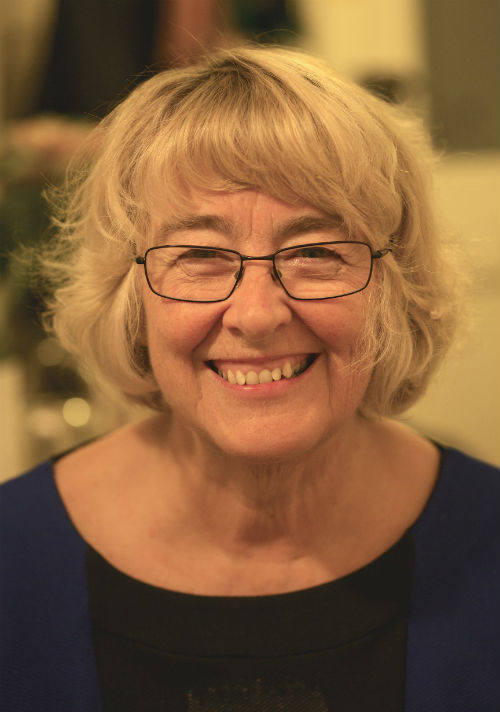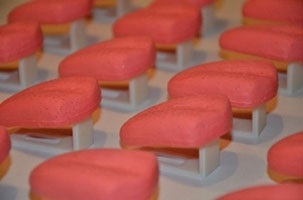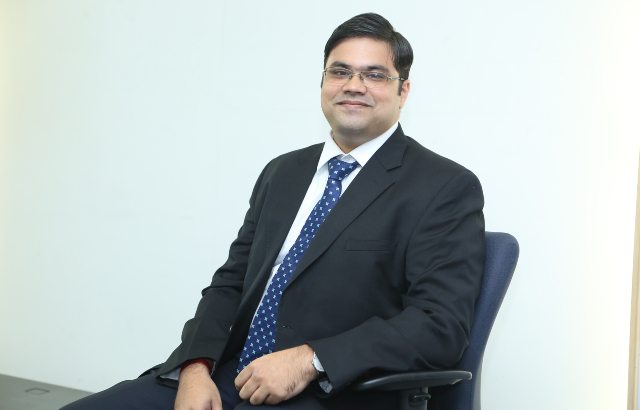IOD news and research
Our recent research has been instrumental in improving oral health in children in the UK and Sudan.
Our staff have also developed the world’s first diagnostic test for the early detection of oral cancers, and created new toothpastes designed to slowly release calcium, phosphate and fluoride ions.
One of our professors was among three Queen Mary researchers named in the top 100 female scientists in the UK in 2022 and we also welcomed the arrival of a new Professor of Dental Public Health.
During the COVID-19 pandemic, academics helped support the NHS through volunteering to assist their medical colleagues.
Saving children’s teeth in Sudan and the UK
-342x228.jpg)
Fadil Elamin, Honorary Senior Research Fellow at the Institute of Dentistry, has developed a way of saving the teeth of children who live in remote areas with intermittent or no access to running water and electricity. Instead of drilling out the rot and capping the tooth, Fadil trialled the Hall technique which does not require a local anaesthetic and specialist skills. By sealing the rot in a glue cap, the germs which cause tooth decay are effectively starved of oxygen and therefore cannot develop. It proved to be as effective a treatment as the ‘gold standard’ and has also been trialled in Scotland. With healthcare resources across the world under increasing strain, the Hall technique is a cost and time-effective way of preserving oral health in children.
Developing a diagnostic test for early detection of oral cancers
.jpg)
Dr Muy-Teck Teh’s ‘quantitative Malignancy Index Diagnostic System’ (qMIDS) is the world’s first diagnostic test for the early detection of oral cancers. It has been validated on over 460 oral cancer patients from the UK, Norway, China and India, with over 90 per cent accuracy compared to conventional tests.
The digital test is less invasive than standard methods and it takes less than 90 minutes to receive the results, compared to current gold standard histopathology which takes up to a week.
China has the third highest rates of oral cancer, following India and the USA, and the UK ranks 11th worldwide. Dr Teh hopes that qMIDS can revolutionise oral cancer diagnosis by providing a cost-effective, fully automated and rapid digital diagnostic system.
Dr Muy-Teck Teh is Senior Lecturer in Head and Neck Cancer. He is involved in undergraduate and postgraduate teaching, and supervision on PhD and MSc research projects in the field of both basic and translational research, especially those focused on oral cancer.
Developing toothpaste and other dental products which slowly release calcium, phosphate and fluoride
Professor Robert Hill, chair of dental physical sciences, is an expert on fluorine-containing glasses and glass-ceramics and became the first British winner of the prestigious Varshneya Award in 2019 for his pioneering work developing Biomin toothpaste. It contains the special glasses that Professor Hill and his team developed. Following research to exploit fluoride glass technology in the dental field, Biomin Technologies produced toothpaste containing these glasses, which dissolve slowly over 10-12 hours releasing calcium, phosphate and fluoride ions. The toothpaste is now sold across Europe, China, India and Australia, and the company is licensing its technology to dental companies for varnishes, composite fillings and adhesives.
Professor Hill teaches Dental Materials to BDS, DClinDent and MSc Students.
Professor Irene Leigh named one of the top 100 female scientists in the UK
 Irene Leigh, Professor of Cell and Molecular Medicine at the Institute of Dentistry, was among three Queen Mary researchers named in the top 100 female scientists in the UK in 2022.
Irene Leigh, Professor of Cell and Molecular Medicine at the Institute of Dentistry, was among three Queen Mary researchers named in the top 100 female scientists in the UK in 2022.
Professor Leigh’s research has focused on non-melanoma skin cancers and genetic skin diseases. Early in her career, she established the Centre for Cutaneous Research at the London Hospital Medical College, which later became part of the Faculty of Medicine and Dentistry. The Centre became a world leader in skin biology research.
Irene directed the Cancer Research UK (CRUK) skin tumour laboratory from 1989-2017. She returned to Queen Mary in 2018 as the Interim Dean for Dentistry and then served as International Dean until 2021 when she served as Interim VP Health. She now leads a project to establish the Queen Mary International Clinical Academy.
Irene’s research focuses on cutaneous squamous cell carcinogenesis particularly genomic and transcriptomic analysis. This has extended to other squamous cancers in a Centre of Excellence for Squamous Cancer being established within the Faculty of Medicine and Dentistry.
Irene is a Fellow of The Academy of Medical Science and Fellow of The Royal Society of Edinburgh. In 2006, she was honoured with an OBE for services to medicine and then a CBE in 2012.
Irene said: “I have been a long-standing supporter of gender equality in medicine so am pleased to see this initiative to highlight the contribution of women scientists.”
Launching a global platform for dental events and courses, and showcasing research
.jpg)
Dr Ali Nankali is a Clinical Senior Lecturer (Adult Oral Health) in the Centre for Teaching and Innovation at the Institute of Dentistry. Ali set up UKDentalCourses, a new global platform for dental events and courses which is also providing opportunities for our staff and students to work and showcase their research. He also enjoys making things from scratch, including making synthetic tongues for students to practice on.

Dr Nankali is involved with teaching undergraduate, postgraduate and PhD students as well as regularly running CPD and other courses.
Global oral health expert joins Queen Mary
 Professor Manu Raj Mathur joined the Centre for Dental Public Health and Primary Care as Professor of Dental Public Health. In his new role, Professor Mathur will contribute to research and implementation activities of Barts Centre for Squamous Cancer (BCSC), a new centre of excellence dedicated to improving detection, treatment, and quality of life for patients with squamous cancer funded by Bart’s Charity.
Professor Manu Raj Mathur joined the Centre for Dental Public Health and Primary Care as Professor of Dental Public Health. In his new role, Professor Mathur will contribute to research and implementation activities of Barts Centre for Squamous Cancer (BCSC), a new centre of excellence dedicated to improving detection, treatment, and quality of life for patients with squamous cancer funded by Bart’s Charity.
Professor Mathur is a Dental Surgeon with more than 15 years of global experience of working in different health systems. His research focuses on risk factors for Non-Communicable Diseases (NCDs), especially tobacco cessation. Throughout his career, Professor Mathur has been an advocate for the Universal Health Coverage philosophy and played an active role in ensuring that appropriate quality oral health care is available, affordable, and accessible for all, across different health systems.
Professor Mathur is a Commissioner on the recently constituted Lancet Commission on Global Oral Health and Vice President of the Global Oral Health Inequalities Research Network of International Association for Dental Research. He has more than 100 peer-reviewed publications in leading international journals, has been the principal investigator on many projects funded by Government of India, WHO, MRC-UK, BMGF, USAID and NIH-USA. His areas of expertise cover epidemiologic methods, operations, health systems and policy research, and health promotion.
Professor Mathur has also recently been recognised in the top two per cent of impact-making researchers worldwide in the field of Medicine and Public Health.
Supporting the medical workforce during the COVID-19 pandemic
Professor Farida Fortune and colleagues examined the role of the dental team as part of the medical workforce during national and global crises
During the current COVID-19 pandemic, members of the dental team were employed in several different settings, including general medical wards, maternity, emergency departments, renal dialysis units, Intensive Care Unit proning and oral care teams. They were also training medical staff on the general wards in COVID-19 procedures, and assisting maxillofacial and general surgery operative procedures. Without exception, the feedback received from senior medical colleagues has been positive.
It is highly advantageous to maintain an effective skilled workforce of dental professionals with additional skills needed during emergencies or times of crises.
Professor Fortune is Professor of Medicine in relation to Oral Health and Director of the Behçet’s Centre of Excellence in London.
-(525x350).jpg) Dr Aylin Baysan is Reader in Cariology, programme lead for MSc Minimally Invasive Dentistry and teaches on a range of undergraduate and postgraduate dentistry programmes. She volunteered in the Maternity wards at The Royal London Hospital to help during the COVID-19 pandemic.
Dr Aylin Baysan is Reader in Cariology, programme lead for MSc Minimally Invasive Dentistry and teaches on a range of undergraduate and postgraduate dentistry programmes. She volunteered in the Maternity wards at The Royal London Hospital to help during the COVID-19 pandemic.
Read a Q&A with Dr Baysan about her experiences while volunteering.
Swati Nehete is a Senior Clinical Lecturer at the Institute of Dentistry. She was also called up to volunteer in the maternity wards at The Royal London Hospital to help during the COVID-19 pandemic.
You can read more about her experiences.
